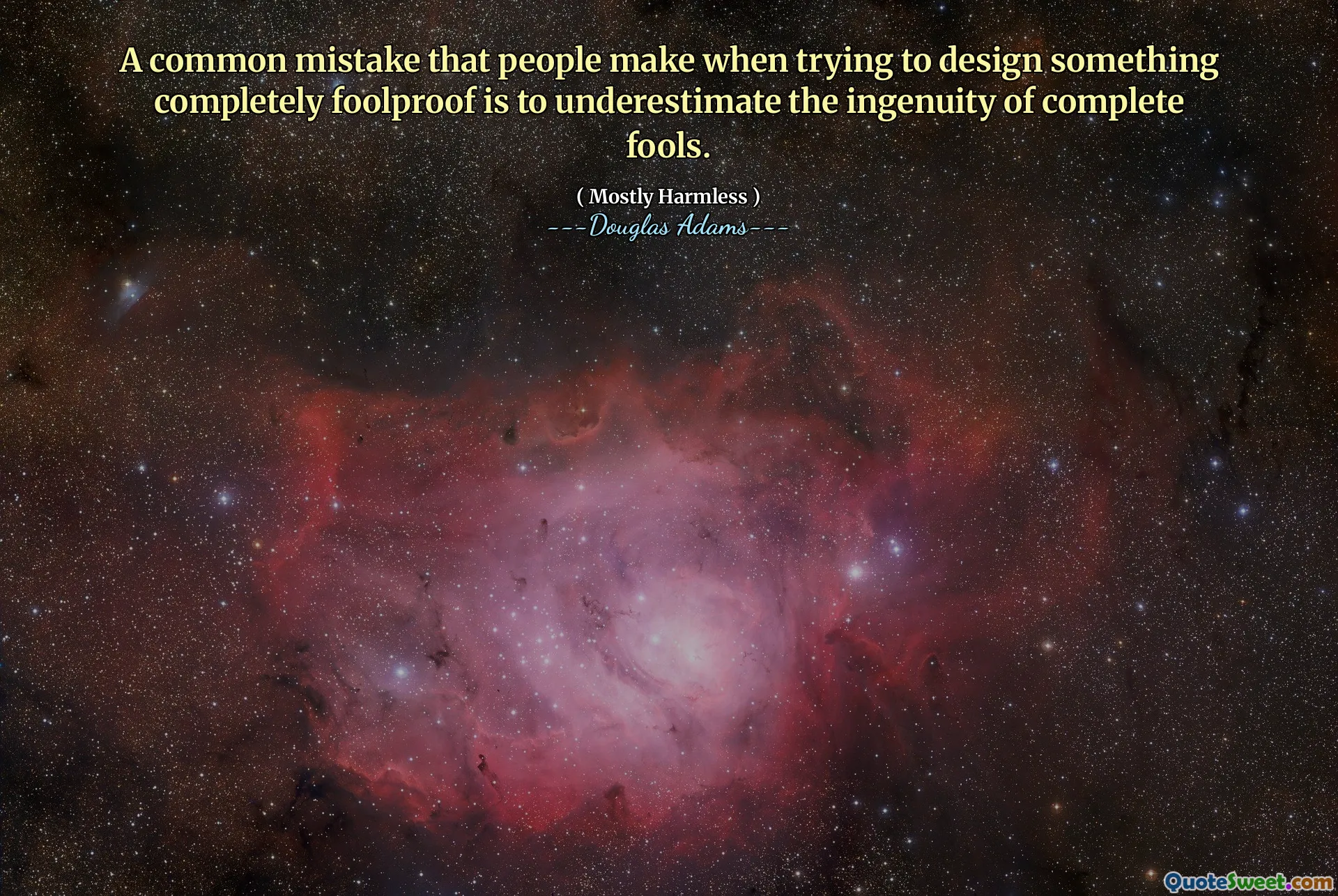
A common mistake that people make when trying to design something completely foolproof is to underestimate the ingenuity of complete fools.
This quote by Douglas Adams humorously highlights a fundamental challenge in design and engineering: the difficulty in creating systems that are entirely foolproof. It points to a universal human experience—no matter how secure, simple, or fail-safe we make a system, there will always be individuals who find ways to circumvent or break it. This observation underscores the importance of understanding human nature and adaptability when developing solutions, whether in software, machinery, policies, or everyday life. Often, designs assume a level of compliance or ignorance that doesn't match reality, leading to vulnerabilities or failures. For example, security systems may become obsolete when clever intruders exploit overlooked loopholes, or safety features might be bypassed by inventive users. Adams’ insight also invites humility in our engineering and design endeavors, reminding us that perfection is often unattainable and that resilience often depends on anticipation of these 'fools' or unpredictable behaviors. There's also a deeper philosophical message: human ingenuity is not always positive or ethical, but creative and resourceful. Recognizing this fact encourages us to design with flexibility, adaptability, and continual improvement in mind. It is a reminder to stay vigilant, to approach problem-solving with humility, and to appreciate that attempts at perfection can be hindered by human nature itself. Ultimately, the quote encourages us to accept imperfections and craft systems that can withstand the unpredictable and sometimes irrational responses of those who challenge them.








